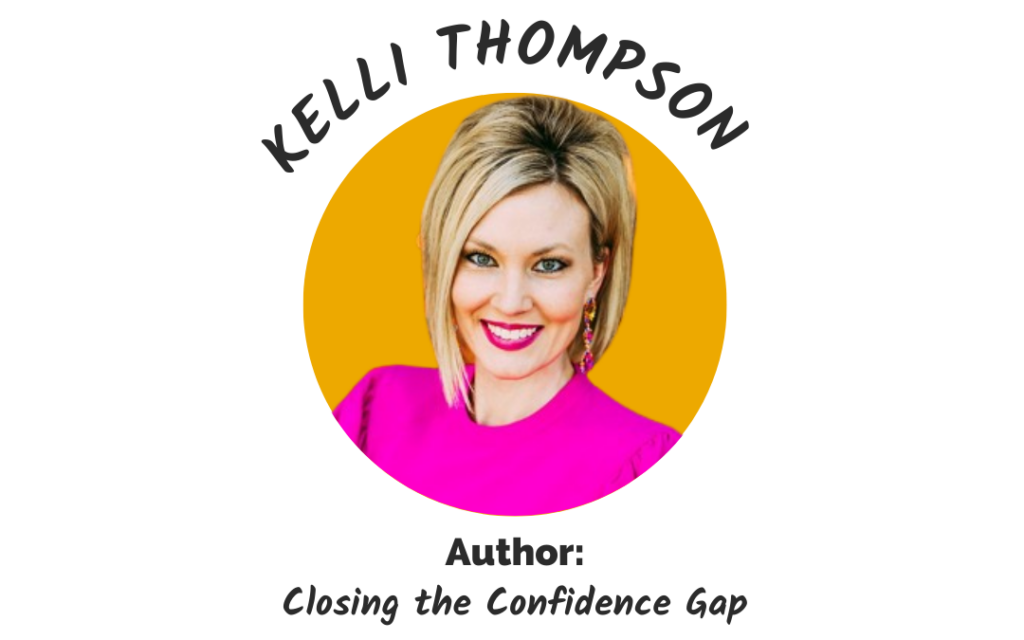Are you unknowingly assigning or taking on non-promotable tasks? In this episode of Transform Your Workplace, Kelli Thompson — author, speaker, and advocate for women in leadership — talks about her own experiences taking on invisible work. She also provides clarifying questions that women can ask when assigned tasks that won’t advance them toward leadership positions.
GUEST AT A GLANCE
Kelli Thompson is the author of the 2022 book, Closing the Confidence Gap, and a recent Huffington Post article, “Women Do the Most ‘Invisible Work’ at the Office.” A leadership coach and speaker, Kelli is passionate about helping women “advance to, and make an impact in, rooms where decisions are made.”

A QUICK GLIMPSE INTO OUR PODCAST
🔊 Podcast: Transform Your Workplace, sponsored by Xenium HR
🎙️ Host: Brandon Laws
📋 In his own words: “The Transform Your Workplace podcast is your go-to source for the latest workplace trends, big ideas, and time-tested methods straight from the mouths of industry experts and respected thought-leaders.”
AN EYE-OPENING EXPERIENCE
Guest Kelli Thompson is no stranger to invisible work in the office. On top of her full-time role, Kelli was asked to lead an annual fundraiser. She was hesitant to take on the additional work because she’d “seen other people do this and […] knew the work that it took.” However, Kelli’s leader assured her that she would gain “a lot of exposure” to senior leadership. After months of painstaking (and unpaid) planning, note-taking, and networking, Kelli finally found herself at the event.
She recalled, “I was standing there while an executive sponsor — I’m the person who led the effort, but there’s always a senior chief executive who is the face of it — was giving all these words of affirmation. We’re on the top floor of our tower, and I’m standing behind all of these men. I remember thinking I could barely see the guy give his remarks because I’m like 5’3” and I’m standing behind all these six-foot-tall corporate leaders, and he’s taking the credit and talking about all the efforts. And he says, ‘Oh yeah, by the way, Kelli was the one who led our efforts this year, and let’s give her some thanks.’ And that was it. I was so deflated because here was supposed to be this opportunity that was going to give me all this exposure. And honestly, like it was a two-second mention.”
Kelli didn’t have language for it at the time, but about two or three years ago, she began to see a conversation arise in the media concerning the unpaid workload of women. That was when it clicked for Kelli that she, along with many other women in the workplace, had been expected to do invisible work for no pay. In fact, a Harvard Business Review found that women get 44% more requests than men to do non-promotable tasks at work.
Kelli decided to dig deeper into this issue so that she could provide women with best practices for saying “no” when the invisible work does not add personal value, align with their career goals and mission, or come with financial compensation.
PODCAST EPISODE HIGHLIGHTS
Non-Promotable Tasks
“Linda Babcock, an author, coined the term ‘non-promotable tasks,’ and what it really boils down to is there are things that we do to get the work done, but they don’t really contribute to results. They don’t contribute to our performance. Ultimately, these are the things that aren’t accounted for on our performance reviews.”
Some Words of Advice
“There are two pieces of advice I would give my younger self. The first is that I would be a little bit more clear about the reward that would be coming from this sort of effort because it was like a job and a half. […] There are some skills that are learned in this process — let’s not toss that aside. But then let’s also talk about what that means for me come review time. What does that mean in terms of a spot bonus? What does that mean in terms of my annual increase? Because if there would’ve been a spot bonus or an increase in salary beyond what’s normal, then all of that might have been worth it, right?”
Consider Outsourcing
“I’d say the second thing that I learned […] was the power of outsourcing. There were things that I was dog-and-pony showing together that honestly we should have just outsourced to an event planning company. In terms of what they’re paying me for salary and benefits, it probably would’ve been cheaper for them just to outsource some of those things. […] What I often tell my clients is that it’s helpful to ask what, in this process, can you outsource to a professional so that you’re not killing yourself every single day.”
Steps for Saying “No”
“Step one was always just to be grateful and to thank them for coming to you: ‘Thank you so much for reaching out to me. Thank you for thinking of me for leading this massive company-wide fundraiser. Right?’ The second is to let people know what you value or what you’re working towards: ‘One of the things I’m really focused on is this strategic initiative of X, Y, Z. That has to be launched by X date.’ Step three is to let people know you can’t accommodate because you are so focused on getting this launched by X date: ‘I don’t think I’m going to have the time that this initiative requires to make it successful.’ And then step four is to be collaborative: ‘But I would be happy to sit and discuss how I can advocate for this or who might be the next best choice.’”
Diversifying Leadership Teams
“Closing the Confidence Gap is written for two audiences. So when you hear the title, you might be thinking that I’m primarily helping the women reading this book speak up and lead with more confidence, and you would be right. But I also address what needs to change systemically in organizations. Because we can’t just tell women, ‘Oh, it’s your problem. You need to get rid of your doubt and your Imposter Syndrome.’ […] We need more diverse leadership teams that can change the systems at work.”
Limiting Beliefs and Expectations
“You have permission to not be the person who is rushing in to save the day all day because it perpetuates a cycle. Let’s lose some limiting beliefs here. Why do you believe you need to say yes and you need to rush in and be the superhero? What is keeping you stuck saying yes when you want to say no? Let’s start with the mindset stuff. Then, let’s set some boundaries. Let’s be very clear on what we’re saying yes to. And is it in alignment with your career goals? Is it in alignment with your career strategy? Is this even in alignment with your values?”
Shifting Your Identity and Delegating
“It’s about shifting your identity from doer to leader and then starting to delegate. And this is where it gets tricky because, as human beings, for the first half of our life, we are rewarded for our individual contributions. But as leaders, it’s less about what we do and the gold stars we collect and less about being the superhero and more about how we’re delegating that work.”
LEARN MORE
Learn more about Kelli Thompson’s book, Closing the Confidence Gap, here. You can also connect with Kelli on Instagram or LinkedIn.
